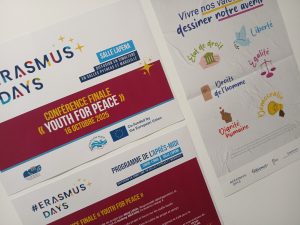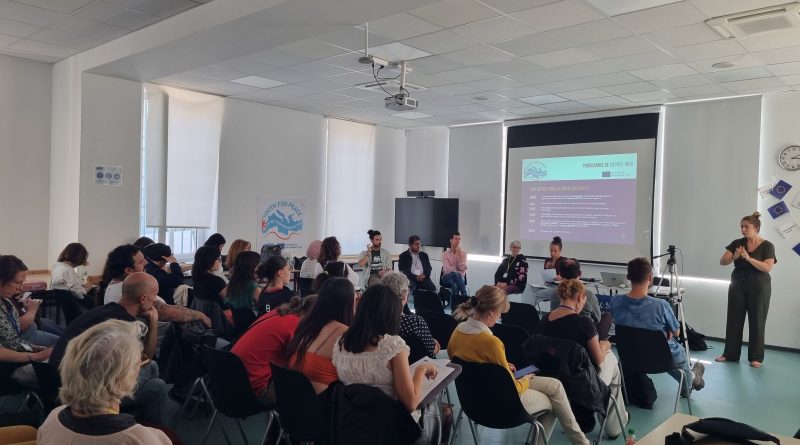Reflections from the Final Conference and Roundtable at IMF RIS
As part of the Erasmus+ project “Youth for Peace in the Mediterranean Sea”, IMF RIS hosted the final conference and roundtable “Environmental Justice in the Mediterranean” on October 16, during the Erasmus Days. The event brought together youth professionals, researchers, activists, and students to reflect on how environmental, social, and peace-related challenges intersect across the Mediterranean region.
The roundtable opened with Audrey M., trainer at IMF RIS, who introduced the concept of environmental justice and its deep links to social justice. She highlighted how the ecological crisis reveals and often amplifies existing social inequalities: the poorest populations are disproportionately exposed to pollution and are largely excluded from decision-making processes.
Next, Mathieu G., sociologist, explored the notion of “lived ecology” among vulnerable groups. He invited participants to move away from an elitist or moralizing vision of ecology to recognize the everyday ecological practices. By understanding how people in vulnerable situations relate to their environment, we can shift toward a strength-based approach, emphasizing empowerment rather than exclusion.
Valentin R., representing Alternatiba Marseille, then presented the movement’s work on popular ecology and the democratic right to reclaim the city. Through citizen-led actions such as Stop Croisières (“Stop Cruises”), Alternatiba advocates for ecological justice that is both local and participatory. His intervention illustrated the intersectionality of struggles, showing how environmental action connects with social rights and climate justice.
Finally, Victor David, researcher at the French National Research Institute for Sustainable Development (IRD), proposed a thought-provoking perspective on the Mediterranean Sea itself, not as a resource to exploit, but as a living entity deserving legal recognition. His research aims to give the Mediterranean a juridical status as a subject of rights, challenging the utilitarian logic that currently defines human–nature relationships.
Through these perspectives, the roundtable offered a powerful synthesis of the project’s core objectives: promoting peace education, intercultural dialogue, and social justice across the Mediterranean. By linking environmental awareness with equity, participation, and social justice, the discussions embodied the spirit of Youth for Peace working together for a Mediterranean that is more sustainable, and peaceful.


